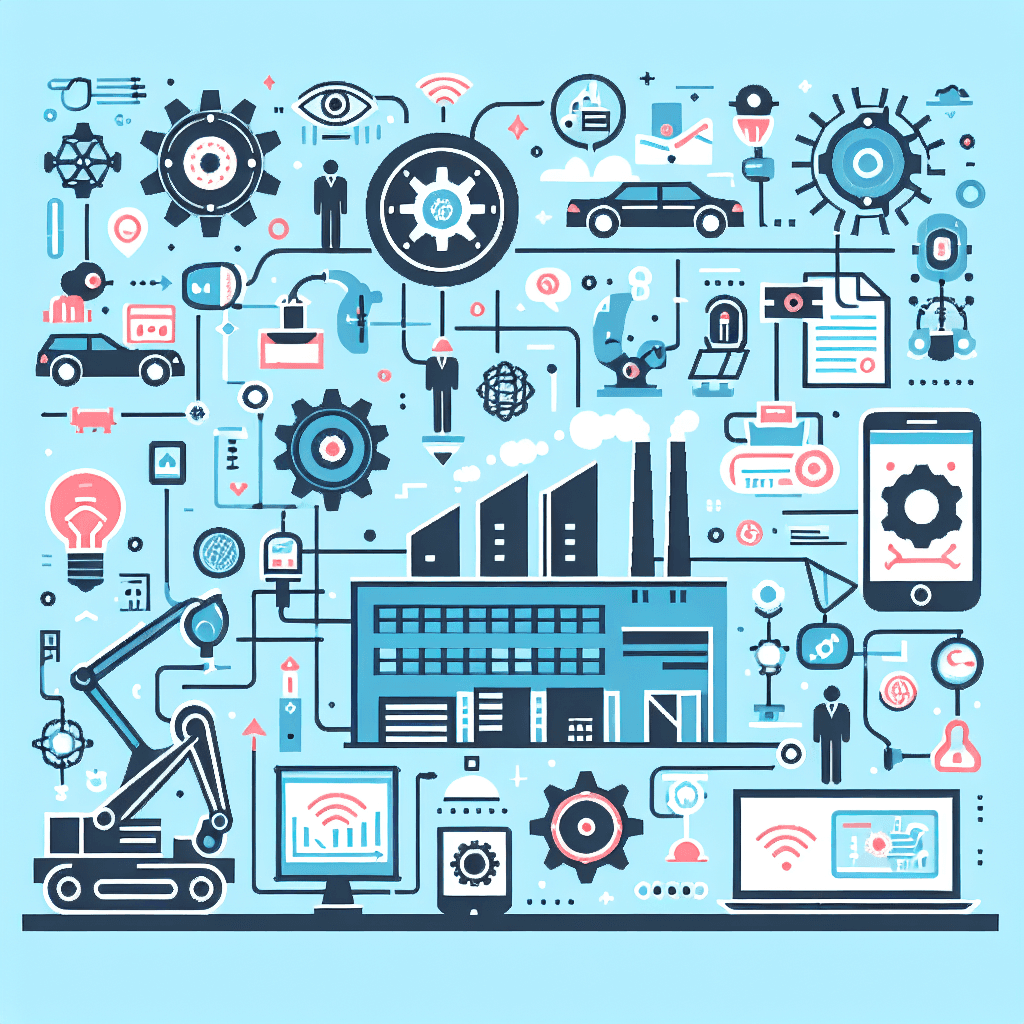The Future of Manufacturing using Industry 4.0 - Learnings from Hannover Messe 2019
The blog post outlines critical insights and trends observed at the Hannover Messe 2019, focusing on the future of manufacturing in the context of Industry 4.0 and IoT. Automation, increased human-machine collaboration, the rise of "As-a-Service" business models, and product customisation were key highlights. Furthermore, the author emphasises that the implementation of Industry 4.0 standards and increased inter-company collaboration will mitigate risks and facilitate seamless transitions into the Fourth Industrial Revolution.
At the start of this month, I took part in an Austrade mission to Hannover Messe, the world’s largest industry and manufacturing fair. Sheda’s mission was twofold: We wanted to get a better idea of trends in manufacturing in action and get in contact with potential partners to offer a more comprehensive way to implement Industry 4.0 and IoT solutions. After an article about Hannover Messe Bootcamp, here are my learnings from Hannover Messe 2019.
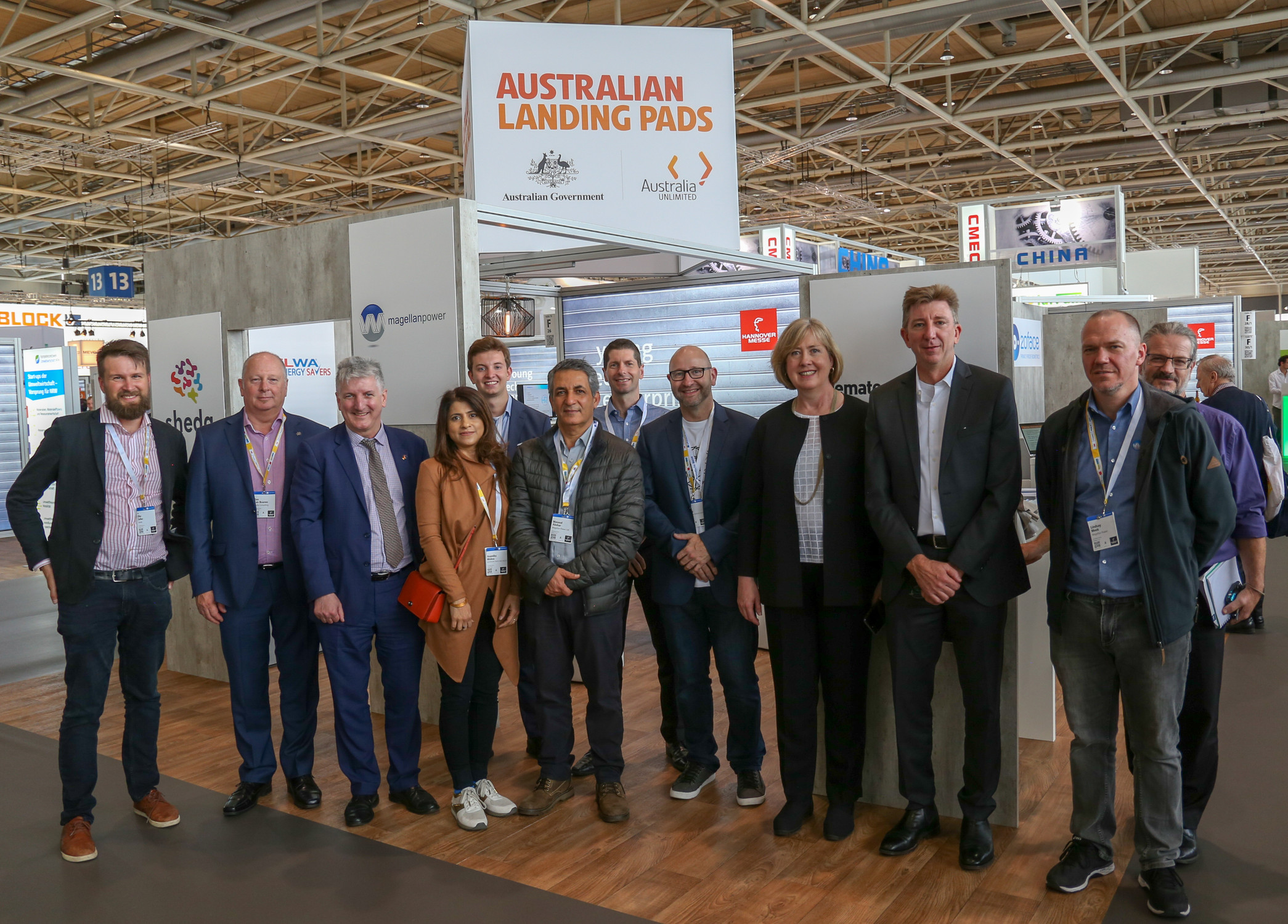
The main highlights I observed at Hannover Messe were:
- Automation gets more integrated with Industry 4.0
- Humans are getting more help from collaborative robots (Cobots) and artificial intelligence
- Digital Twins meet Augmented Reality
- Customisation is driving Industry 4.0
- “As-a-Service” business models getting more popular
- Collaboration is leading to Interoperability and Standards
Automation gets more integrated with Industry 4.0
Industry 4.0 or digitization of factories to perform real-time analysis of manufacturing processes was huge at the Hannover Messe. According to IoT Analytics, the global Industry 4.0 market is to climb to US$310B within the next 5 years.
Sensing data is a key element in Industry 4.0. Zeiss demoed a remarkable system that performed spectroscopy in combination with machine learning to detect the fat content of potato chips rushing by on an assembly line. All this data can then be used to optimise processes and make them more repeatable.
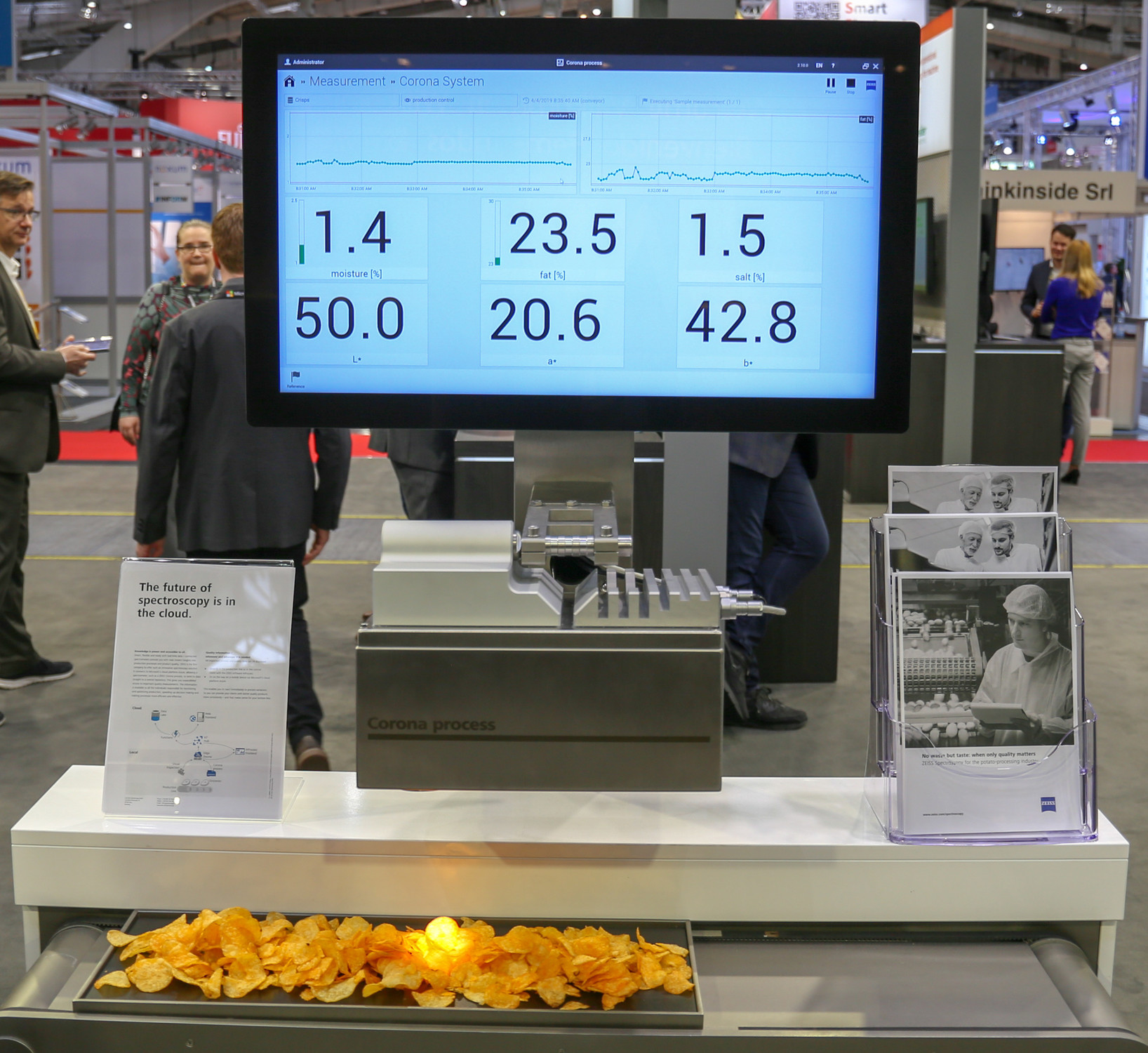
On the other hand, more and more processes are being automated. Here is a system by Bühler using an electron beam to remove bacteria of the surface of rice grains at mind-blowing speed.
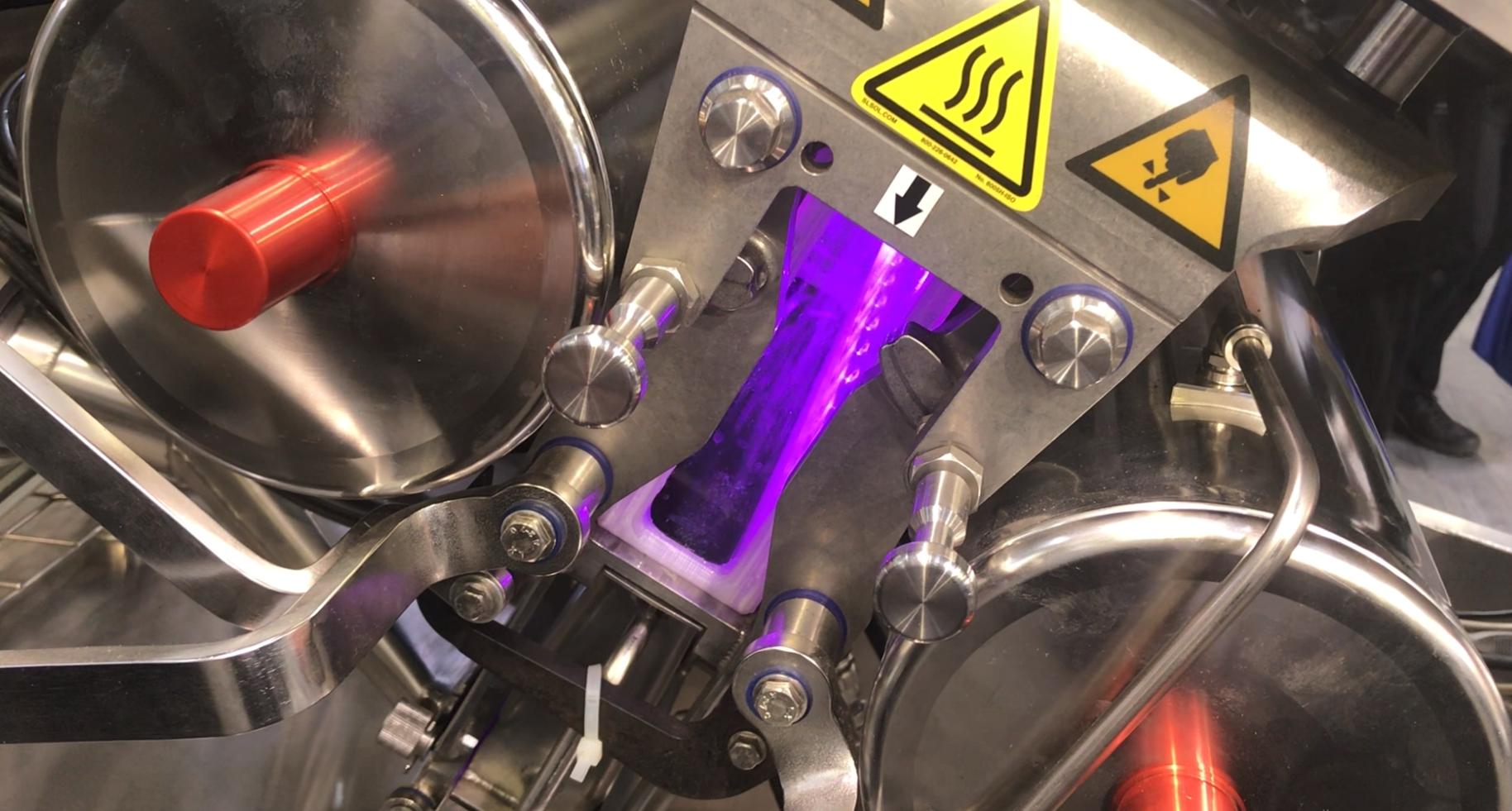
Many companies showed completely integrated production lines. There will be a huge shift in the operation of factories within the next decade. The role of the workforce will move more to conducting and troubleshooting.
Humans are getting more help from Cobots and Artificial Intelligence
While automation is pervasive in manufacturing, humans still play a big part in the manufacturing process, they are now assisted by a mix of collaborative robots, or short Cobots and artificial intelligence.
Companies, like Arkite and Optimum, demoed light assistance systems. These systems use computer vision to track the actions of workers and notify them when mistakes are detected, this allows for corrections early on in the process resulting in a lower defect rate.

4tiitoo presented a system that tracks your eye movements and uses an algorithm to predict what on-screen action you might want to take next and places a cursor at that point. This drastically reduces the required mouse movements needed to make CAD drawings and results in efficiency and productivity gains and reduces the risk of developing repetitive strain injuries.

At the AWS stand you could observe a robot that uses machine learning to recognise shapes of arbitrary objects and could then grab them.
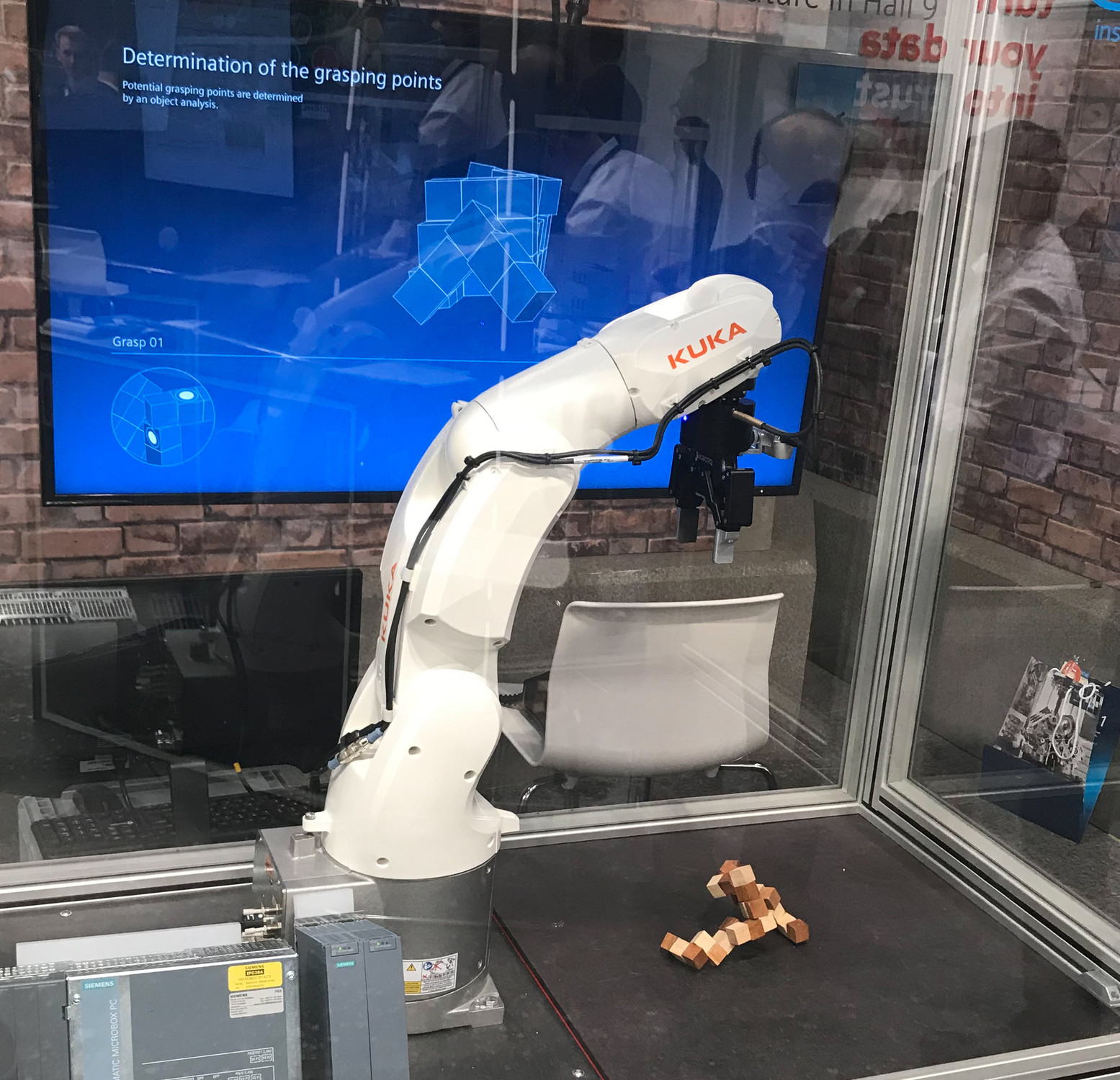
Digital Twins meet Augmented Reality
Another trend on display at Hannover Messe was Digital Twins paired with Augmented Reality. Digital Twins are virtual simulations of single fabrication processes or whole factory processes and operations. They allow manufacturers to prevent bottlenecks while planning or optimising production lines. Digital Twins contain virtual replicas of the equipment or machines.
Digital Twins can be combined with augmented reality to create interactive models of the factory lines that can be used for training or to provide real-time information about the machines in the factory. I got to try a pair of AR glasses by DAQRI to view a digital twin’s operations. While this is new technology, I was pretty impressed by how intuitive interactions with the digital factory counterparts were.
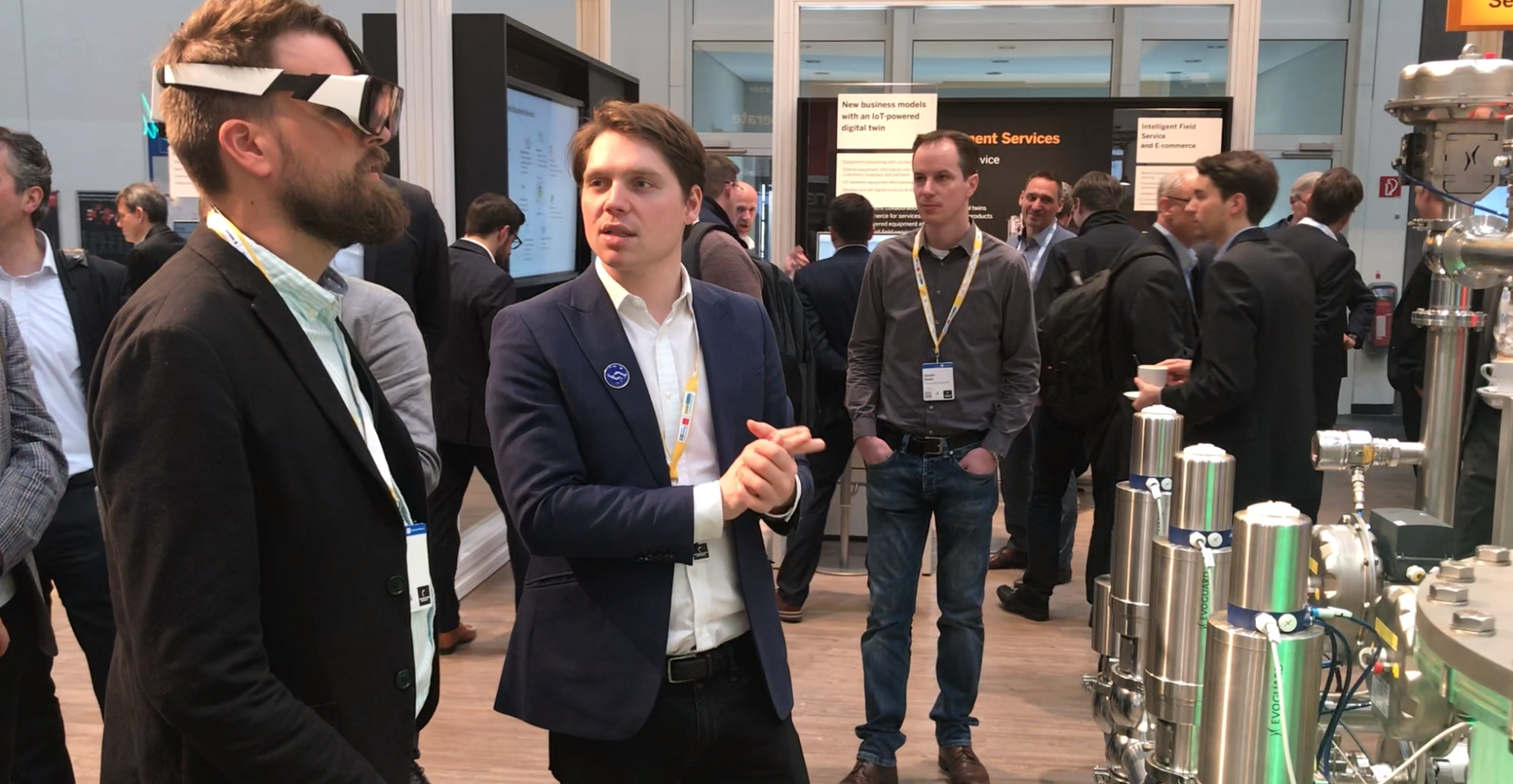
“As-a-Service” business models getting more popular
I noticed a growing trend of businesses moving from a traditional model of selling a device, equipment or product directly to a customer to “As-a-service” business model. Rather than selling just product, the producer is selling the use of the product, providing access to the device or equipment with on-going maintenance for a subscription fee, this reduces the CapEx required to take on an Industry 4.0 project.
Take a generator, for example, the traditional way is to sell it the customer or to rent it for a certain time frame. The company that was renting out the generator didn’t know if it used just 1 hour over the rental period or if it was running 24/7. By turning the generator into an IoT device it is possible to rent out to the generator only for the time it is actually used. This reduces the investment and financial risk for the customers.
In turn, the producer can obtain more data about how the generator is used, which allows for the optimisation of the product and a better understanding of the customer which can lead to a more comprehensive offering.
Customisation is driving Industry 4.0
Enhanced customisation and personalisation were pretty huge at Hannover Messe. At the VDE stand, you could witness the fabrication of a personalised power bank with a caricature of yourself laser etched into it.
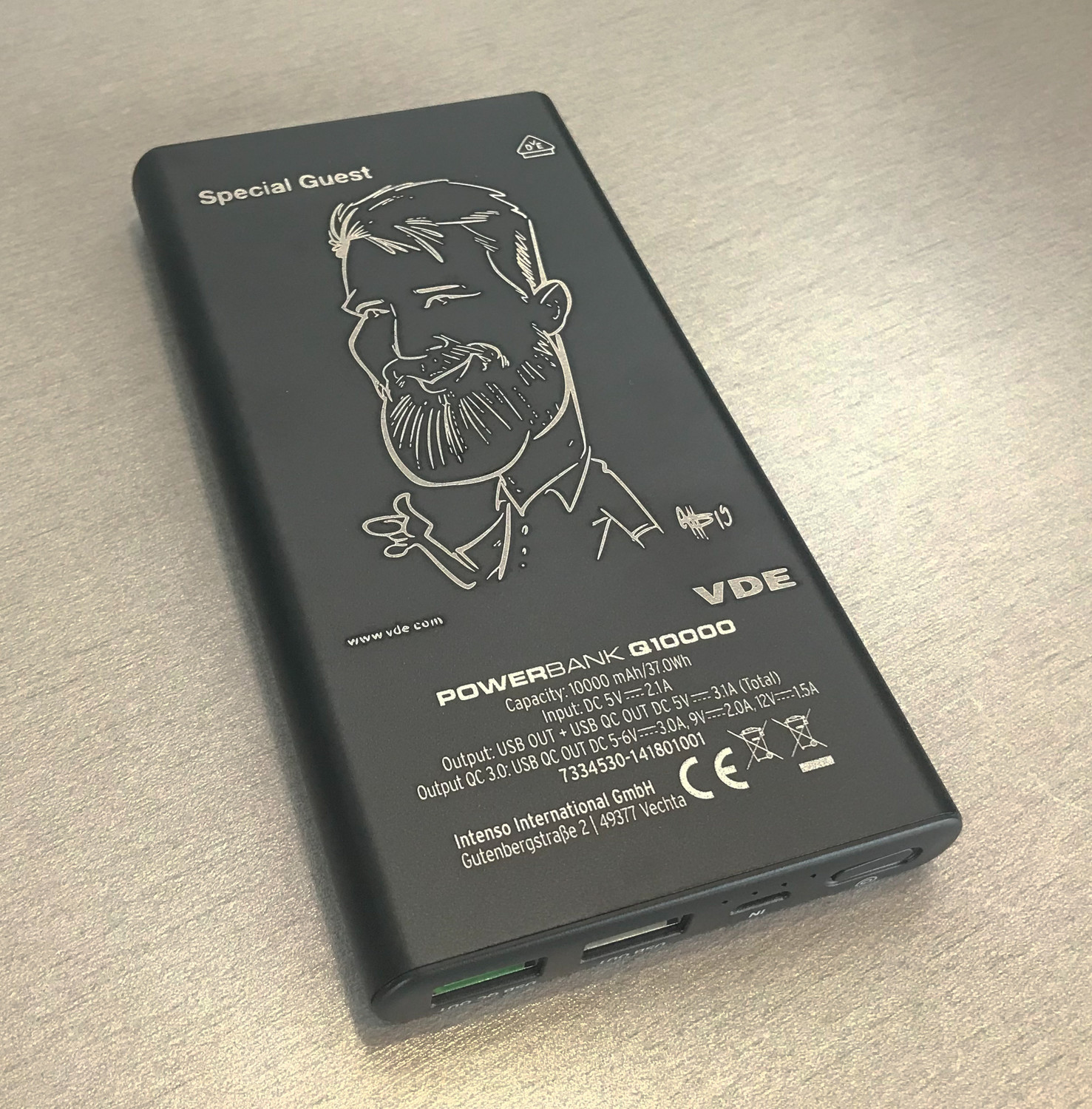
One of the big promises of Industry 4.0 is that it will enable the fabrication of highly customised and even personalised goods. SEW Eurodrive demonstrated how the car assembly of the future would be used to create customised cars which might have different fabrication steps and require a flexible assembly line.
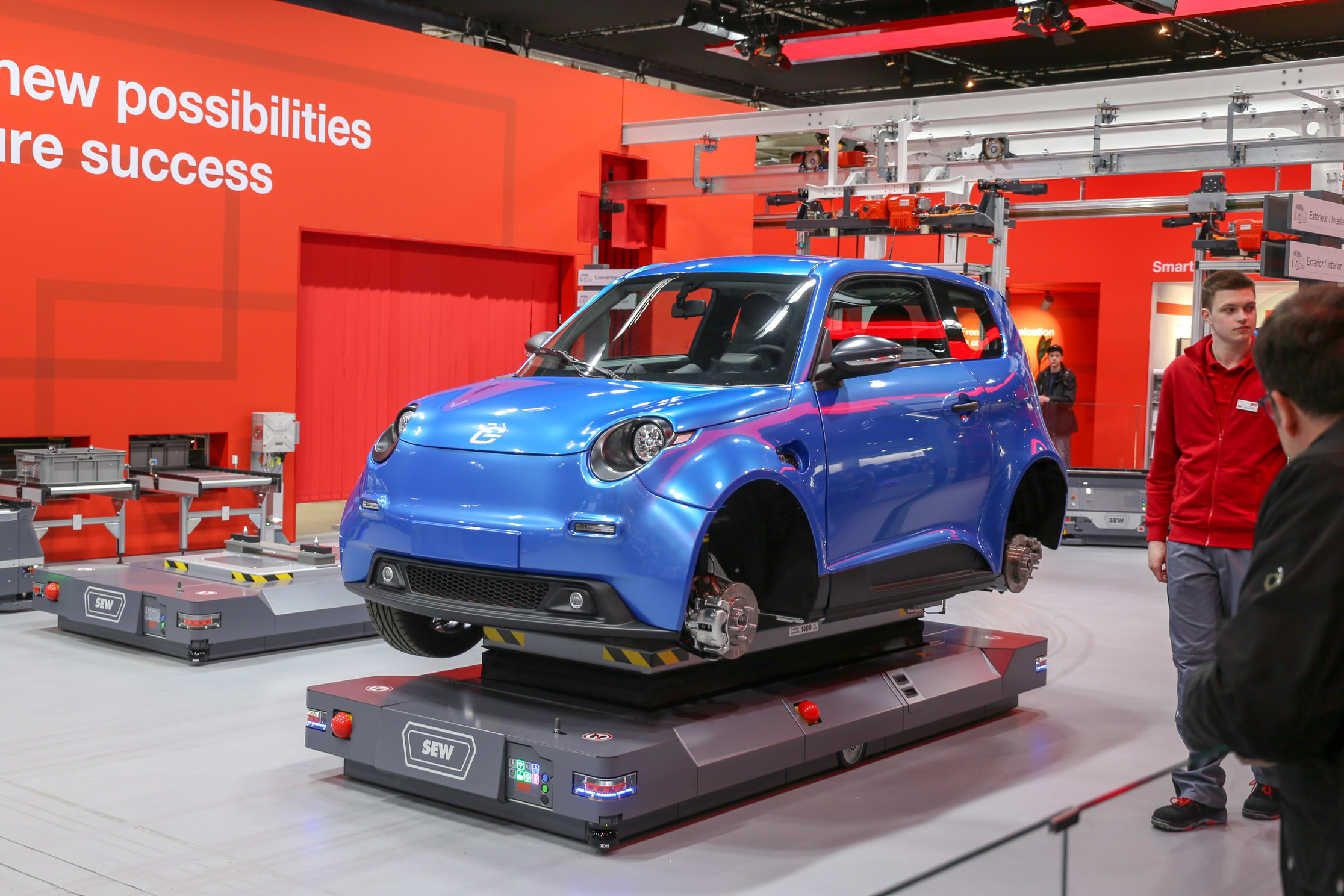
Automated Guided Vehicles or AGVs are used to transport the cars through the factory floor. The workers wear smart watches which they use to signal when they are available to carry out the next step in the assembly process. AGVs with a car and one with tools and parts would drive to the worker so that they could carry out the assembly step.
Collaboration is leading to interoperability and standards
I was really impressed by the amount of collaboration between companies that were shown at Hannover Messe. A lot of multinationals such as SAP, Microsoft, AWS have setup startup accelerator programs to strengthen collaborations with SMEs. These SMEs were given the opportunity to display and demo their products and solutions using the platforms of these industry giants.
SmartfactoryKL is a network of 45 organisations from industry and research driving the implementation of Industry 4.0 and smart factories. At Hannover Messe, they demonstrated completely automated assembly lines for the production of business card holders which are made from lots of components from different vendors. The demos did have a few technical difficulties that required a human on hand to troubleshoot some of the production steps but the idea and potential of the solution are very promising.

Interoperability is the future of Industry 4.0, so much that Platform Industrie 4.0, a German central network for driving digitization in manufacturing, made it the priority of its vision for 2030. There was a lot of talk around standardisation of Industry 4.0 at Hannover Messe. Essentially these standards will further enable interoperability between machines and devices of different manufacturers. Hopefully, the implementation of standards will reduce the risk and barriers for more companies to enter the age of Industry 4.0
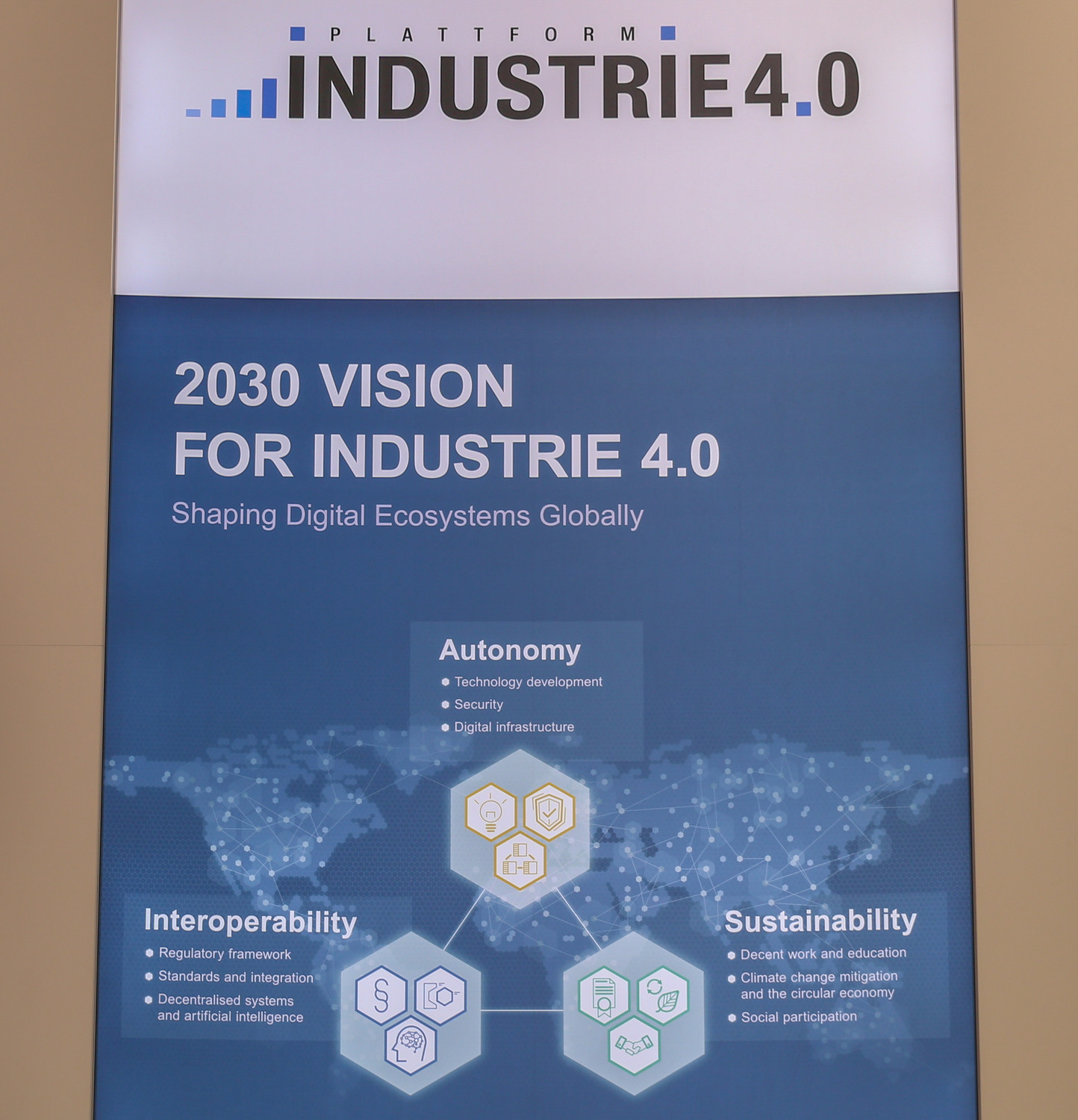
Conclusions
The fourth industrial revolution is happening right now. This means more automation and collaboration between humans and machines. Apart from enhanced productivity, Industry 4.0 is enabling more customised goods and even more importantly new business models like “As-a-service”.
This is where Sheda comes into play. As experts in helping businesses create new products and services using Smart IoT devices and applications, we will help you to transform your product offering into smart solutions, such as product as a service to offer more value, get more insights and attract more customers. Interested? Reach out to iot@sheda.ltd or contact me on LinkedIn.
In order to move Industry 4.0 forward, a collaboration between companies is essential. In this spirit, we are running a follow-up event of our visit to Hannover Messe on May 13th at Google in Melbourne, just before the National Manufacturing Week starts. We will be joined by an exciting panel including:
- Jens Goennemann from Advanced Manufacturing Growth Centre
- Vela Georgiev from Hardworx
- Clive Milham from Ai Group
Come along, get inspired and connect with others playing in manufacturing.
Sign up here: https://industry40evening.eventbrite.com.au
